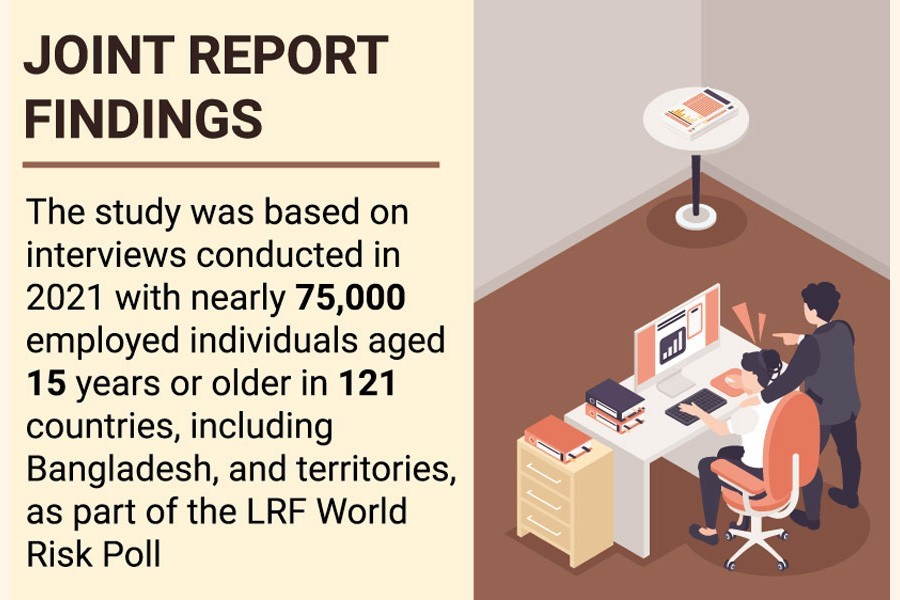More than one in five people (almost 23 per cent) in employment has experienced violence and harassment at work-be it physical, psychological or sexual, reveals a new joint report.
The global first-of-its-kind survey report styled 'Experiences of Violence and Harassment at Work' was jointly published by International Labour Organization (ILO), Lloyd's Register Foundation (LRF) and Gallup on Monday.
The report also provides a sense of the extent of the problem and its different forms.
It looks at the factors that may prevent people from talking about their experiences, including shame, guilt or a lack of trust in institutions, or because such unacceptable behaviours are seen as "normal".
Violence and harassment at work is difficult to measure.
The report found that only half of victims worldwide disclosed their experiences to someone else only after suffering more than one form of violence.
The most common reasons given for non-disclosure were "waste of time" and "fear for their reputation".
Women were more likely to share their experiences than men (60.7 per cent compared to 50.1 per cent), according to the report.
Globally, 17.9 per cent of employed men and women said they experienced psychological violence and harassment in their working life, and 8.5 per cent physically, with more men than women experiencing this.
"Of the respondents, 6.3 per cent reported facing sexual violence and harassment, with women being particularly exposed."
The study was based on interviews conducted in 2021 with nearly 75,000 employed individuals aged 15 years or older in 121 countries, including Bangladesh, and territories, as part of the LRF World Risk Poll.
The groups most likely to be affected by different types of violence and harassment include youth, migrant workers, and wage and salaried women and men.
Young women were twice as likely as young men to have faced sexual violence and harassment, and migrant women were almost twice as likely as non-migrant women to report sexual violence and harassment.
More than three out of five victims said they experienced violence and harassment at work multiple times. For the majority, most recent incidents took place within the past five years.
"It's painful to learn that people face violence and harassment not just once but multiple times in their working lives," said Manuela Tomei, ILO assistant director-general for governance, rights and dialogue.
"Psychological violence and harassment is the most prevalent across countries, and women are particularly exposed to sexual violence and harassment."
The report tells about the enormity of the task ahead to end violence and harassment in the world of work.
"I hope it will expedite action on the ground and towards the ratification and implementation of the ILO Convention 190."
The ILO's Violence and Harassment Convention-2019 (No. 190) and Recommendation (No. 206) are the first international labour standards to provide a common framework to prevent, remedy and eliminate violence and harassment in the world of work, including gender-based violence and harassment.
It includes the specific recognition, for the first time in international law, of the right of everyone to a world of work free from violence and harassment, and sets out the obligation to respect, promote and realise this.
The report makes recommendations, including regular collection of robust data on violence and harassment at work, at national, regional and global levels, to inform prevention and remediation laws and mechanisms, policies and programmes, and research and advocacy.
It also suggested extending and updating mechanisms to effectively prevent and manage violence and harassment in the world of work, including through labour inspection systems and occupational safety and health policies and programmes.


